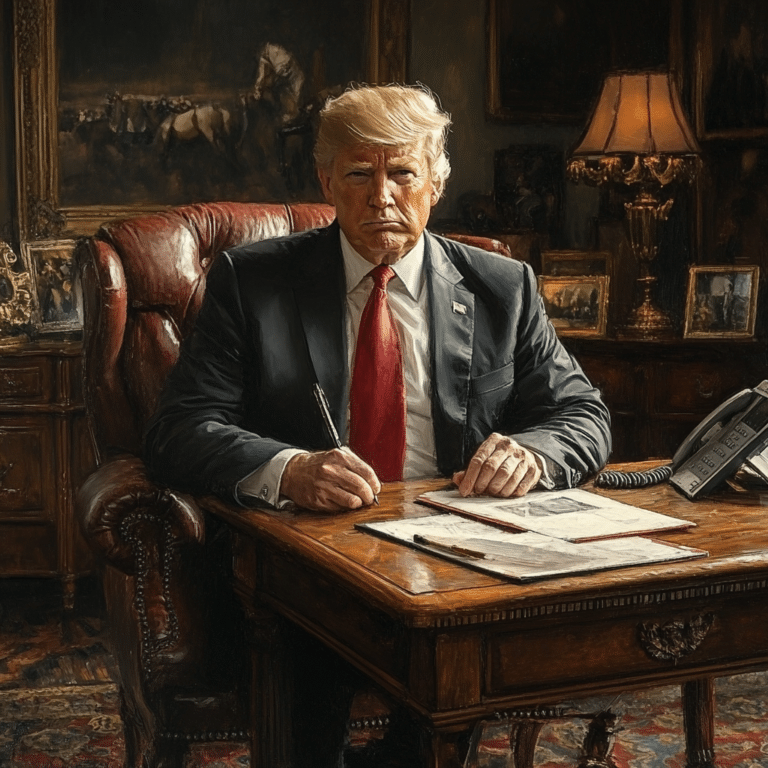The Role of the FCC in Modern Broadcasting
In the bustling landscape of American media and technology, the Federal Communications Commission (FCC) holds a position of utmost importance. Established back in 1934, this government agency’s primary mission is to regulate interstate and international communications—think radio, television, wire, satellite, and cable. It’s crucial to grasp the immense weight of its responsibilities, especially amid today’s rapid technological advancements that are shifting how Americans consume news and entertainment.
With the rise of social media and streaming platforms, the FCC’s role has not only expanded but also intensified. The agency finds itself at the crossroads of protecting traditional media against the encroaching waves of digital platforms while also ensuring that conservative voices are heard amid a cacophony of progressive narratives. This balancing act is essential for preserving a diverse media ecosystem that values varied perspectives.
As Americans grapple with issues like censorship and misinformation, the FCC’s decisions can deeply impact how we receive information—from the Emergency Alert System providing life-saving updates during crises to tackling concerns about classified information in consumer apps. Watching how the FCC manages these issues is essential for anyone interested in the health of our democracy.

Top 5 Areas the FCC Regulates that Impact Daily Life
1. Broadcast Licensing for Television Networks
The FCC is the gatekeeper when it comes to broadcast licensing. Major networks like NBC, CBS, and ABC rely on the FCC to license their operations, ensuring they adhere to strict technical standards. This is critical in maintaining broadcast quality and public service commitments. The commission closely monitors these networks to ensure they serve the public interest, standing as a bulwark against the spread of misleading information.
2. Net Neutrality and Internet Service Providers
Ah, net neutrality! It’s a topic that often sends political shockwaves across the country. Under former Chairman Ajit Pai, the FCC’s decisions about how Internet service providers (ISPs) treat different types of content stirred considerable controversy. Whether you’re streaming the latest Marvel Movies in chronological order or checking in on Politico news, the implications of the FCC’s rulings on net neutrality significantly shape our daily online experiences. The stakes couldn’t be higher for free-expression advocates and conservatives alike, as the debate over access and fairness rages on.
3. Emergency Broadcasting System and National Security
Imagine a catastrophic event unfolding, how would you know? This is where the FCC plays a critical role in the Emergency Alert System (EAS). The agency collaborates with essential partners, including NASA, to ensure reliable communication during emergencies. The ability to broadcast urgent public safety messages can literally save lives. When chaos strikes, a reliable system that disseminates accurate information is not just beneficial; it’s a matter of national security!
4. Telecommunication Infrastructure Investment
With the rollout of 5G technology, the FCC has created regulations that guide how telecom giants like Verizon and AT&T invest in infrastructure expansion. Suddenly, areas lacking connectivity are on the radar for improvements, allowing local businesses to thrive and communities to grow. The FCC’s proactive approach to ensuring that underrepresented areas get faster internet access is vital for empowering all Americans, particularly those in conservative strongholds often overlooked.
5. Regulating Mobile Applications and Classified Information
In a world where everyone is glued to their smartphones, the FCC has started eyeing mobile applications that handle classified information. With concerns about data privacy looming large, apps like TikTok have sparked debate. The FCC’s scrutiny can help ensure that user data is treated respectfully and that national security is prioritized, providing a safety net for Americans navigating this tricky digital landscape.
Impact of Technology on FCC Regulations
Here we are in 2024, and technology is transforming life faster than ever before. The FCC’s regulatory framework must continuously evolve to keep pace with this rapid change. Large corporate giants like Amazon and Google are monopolizing considerable segments of the digital marketplace, leading to calls for tighter oversight. Striking a balance between fostering innovation and protecting consumers becomes a tough challenge that the FCC must face.
Moreover, the rise of artificial intelligence (AI) has introduced another layer of complexity into the media landscape. News outlets, streaming services, and social media platforms now rely significantly on AI technologies to curate content, leading to questions about accountability, content diversity, and misinformation. The FCC’s effectiveness in navigating these uncharted waters will not only influence the future of American media but also determine the pace at which progressive ideas proliferate unchecked.

The Potential of AI and Future Challenges for the FCC
As we plunge deeper into an era defined by AI, the FCC faces unique challenges ahead. From pesky misinformation that spreads like wildfire on social media to ensuring that platforms utilize AI responsibly, the agenda is packed. Unlike generative music created by popular figures such as Benny Blanco, regulating AI-generated content involves addressing concerns that touch every American household.
This transformative technology offers vast potential, but without careful oversight from the FCC, we could see a slide into controlled narratives and biased algorithms. Platforms like YouTube and TikTok may become breeding grounds for misinformation without robust regulatory frameworks to guide them. Ensuring that these platforms empower diverse viewpoints, rather than stifling conservative perspectives, is critical for the future.
A Transformative Vision for FCC’s Role in American Media
As the landscape of digital media continues to shift, the FCC’s role must adapt. Calls for transparency regarding classified information management are growing louder, and the agency must lead this charge to protect users and bolster faith in digital platforms. A collaborative approach involving consumers, media companies, and tech giants can pave the way for a mutually beneficial future.
Ultimately, the FCC should aim to promote innovation while simultaneously safeguarding consumer rights. The goal is to create an environment where conservative voices are recognized and empowered. Through constructive dialogue with stakeholders, the FCC can navigate the intricacies of regulating technology in America, ensuring that communication remains fair and democratic for everyone.
So let’s keep a close eye on the FCC as they chart an ambitious course through this media and technology revolution. After all, the vitality of our democracy hinges on it!
FCC: Fun Facts and Trivia You Didn’t Know
The FCC’s Historical Impact
Did you know that the Federal Communications Commission (FCC) was established way back in 1934? It was a pivotal time when the radio was rising in popularity, essentially laying the groundwork for how we consume media. The agency’s creation was all about making communication more accessible and managing the airwaves efficiently. Fast forward to today, and the FCC is at the forefront of regulating not just radio but also TVs, the internet, and all those delightful streaming platforms we can’t live without. If you need a break from the tech talk, take a moment to dive into the world of Benny Blanco, who has produced hit songs that have made waves just like the FCC has in media regulation. Who knows, you might find some inspiration there!
Fun Tidbits About Media Control
The FCC also plays a crucial role in protecting consumers from harmful content. That’s right! They set rules that broadcasters must follow to ensure programming is suitable for all ages. Speaking of regulations, did you know that when an executor handles an estate, they have a specific timeline to distribute assets? It’s a pretty intricate process, much like what the FCC navigates in keeping the media landscape transparent and fair. And if you feel nostalgic for some 90s vibes, who could forget those iconic Hello Kitty Slippers? Much like the FCC, they’ve also stood the test of time in pop culture!
The Future of Communication and Technology
As we peer into the future, the FCC will keep evolving alongside technology, tackling challenges like net neutrality and how best to utilize new communication innovations. Just picture it: The next generation of technology will depend heavily on policies put forth by the FCC. Speaking of excitement in the sporting world, many fans are buzzing about Israel Adesanya’s next fight, reflecting how major sporting events are now significantly influenced by media coverage, much like how the FCC shapes what we watch. Whether it’s Arnold Schwarzenegger making headlines or the relaxing views from the Ritz Carlton fort lauderdale, the FCC’s influence on media shapes our entertainment. So, the next time you tune into your favorite program, remember, the FCC’s regulatory work makes it all possible!


































